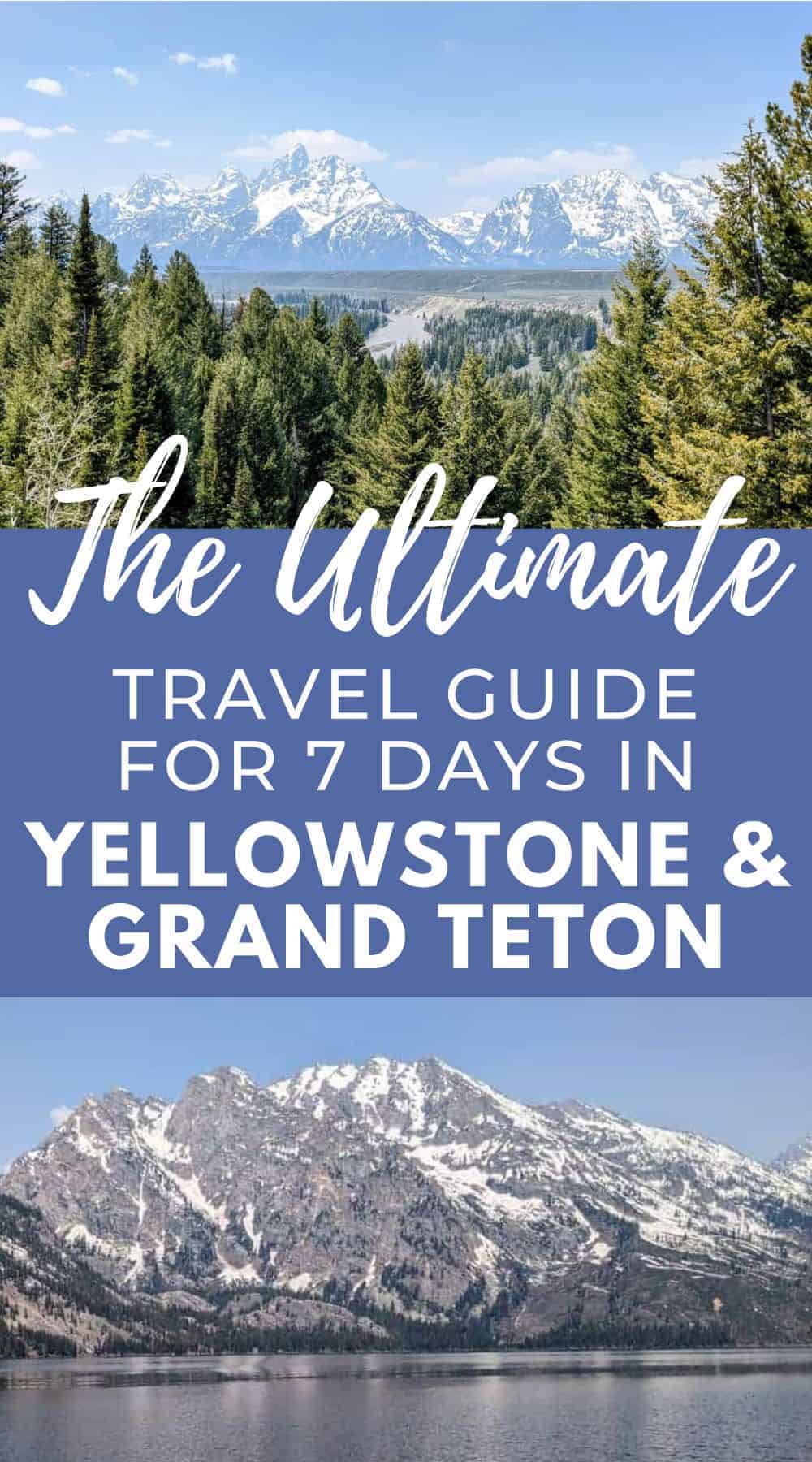7 Days in Yellowstone and Grand Teton: Ultimate Guide
At Yellowstone and Grand Teton national parks, you will discover an incredible range of America’s wilderness, from erupting geysers to jagged mountains. This itinerary for seven days in Yellowstone and Grand Teton will help you experience the highlights and hidden gems of both national parks. In this article, I’ll prepare you for an exciting trip with useful tips and advice.
Itinerary at a glance
Day 1: Arrive in Jackson, Wyoming, and explore the town
Day 2: Grand Teton Scenic Loop
Day 3: Jenny Lake and hiking
Day 4: Northern Grand Teton and Yellowstone Upper Geyser Basin
Day 5: More Geyser Basins and Grand Canyon of the Yellowstone
Day 6: Yellowstone Lake and Wildlife Viewing
Day 7: Norris Geyser Basin, Mammoth Hot Springs

This post includes affiliate links. If you make a purchase through one of these links, I may earn a small commission at no additional cost to you. As an Amazon Associate, I earn from qualifying purchases. See disclaimer.
Know before you go
7-day Yellowstone and Grand Teton itinerary
This itinerary is designed to give you an overview of the highlights of both parks. The itinerary starts with your arrival in Jackson, followed by a visit to Grand Teton National Park, and then Yellowstone. You can also do this itinerary in reverse.
Only have time to visit one park rather than both? Check out Yellowstone vs Grand Teton to help you make your decision.
I recommend that those traveling to Yellowstone download the GuideAlong app and purchase the Yellowstone + Grand Teton National Park Tour.
Day 1: Arrive in Jackson, Wyoming, and explore town
Once you arrive in Jackson, Wyoming, and check into your hotel, spend the rest of the day exploring this fun town. Stroll around the square to see the famous antler arches, enjoy coffee at a local shop, and visit unique stores for a relaxing first day.
Stop by a store such as Whole Foods or Albertson’s to get snacks and picnic items for lunch in Grand Teton. You might end your day with dinner at a local spot like Snake River Brewing.
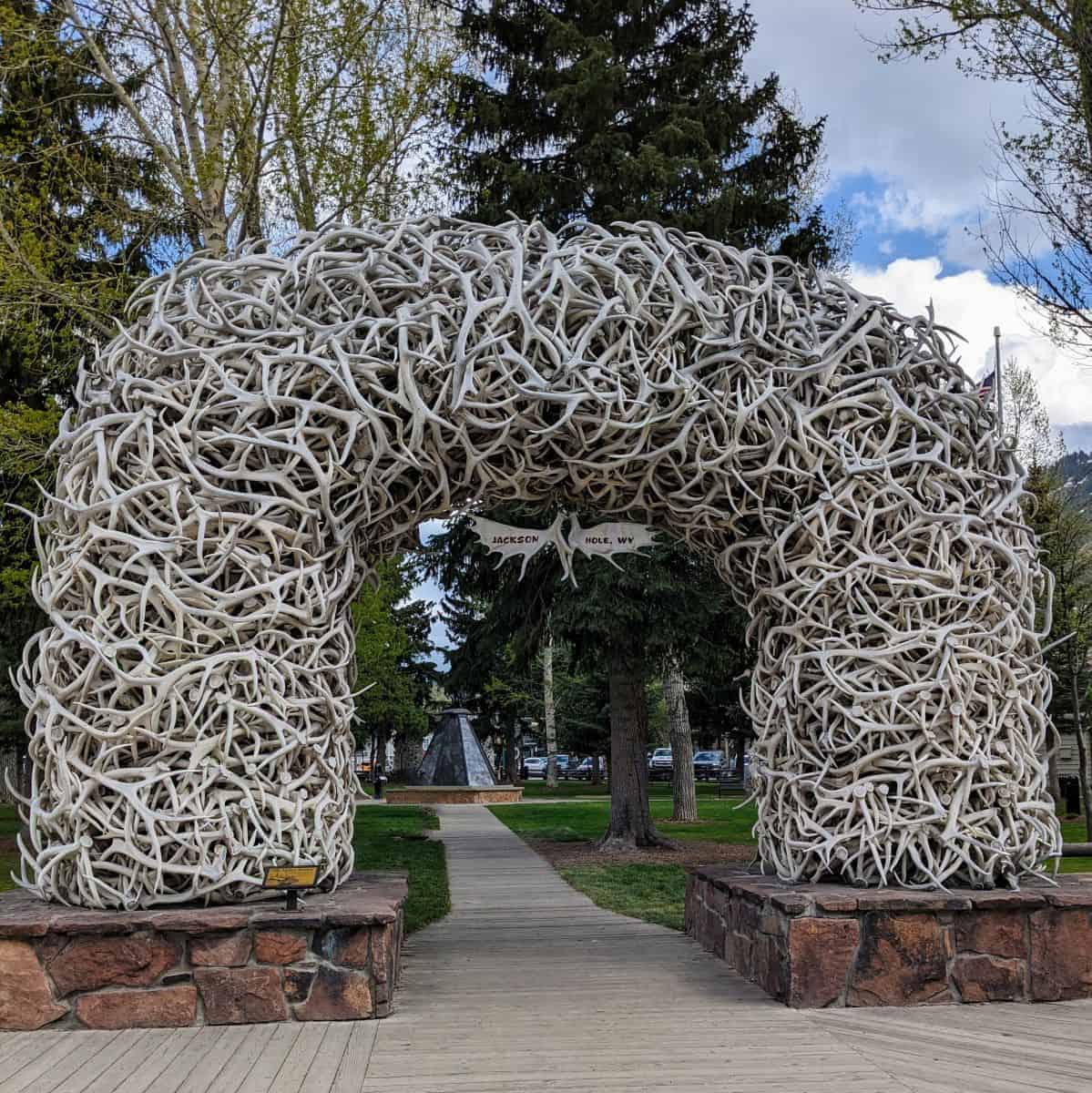
Day 2: Grand Teton Scenic Loop
On your first full day in Grand Teton, you’ll explore the bulk of the park by doing the Grand Teton Loop scenic drive.
For photographers eager to capture Grand Teton’s best photo spots, start early in the morning and drive the loop counterclockwise from Jackson for optimal lighting. By following this route, you’ll reach key photo locations like Mormon Row, Schwabacher Landing, and Oxbow Bend sequentially.
These are some of the best views in the park. The morning sun shines on the front of the barns at Mormon Row, giving you the best chance to get beautiful photos of the barns with the rising sun illuminating them and the Tetons behind.
For those preferring to simply enjoy the views or start a hike early, driving the loop clockwise is ideal. We chose to do the loop clockwise, stopping first at the Craig Thomas Discovery and Visitor Center when it opened and ending our day at Mormon Row before heading back to Jackson for dinner.
See my detailed guide on scenic driving in Grand Teton National Park for details about the stops on this route.
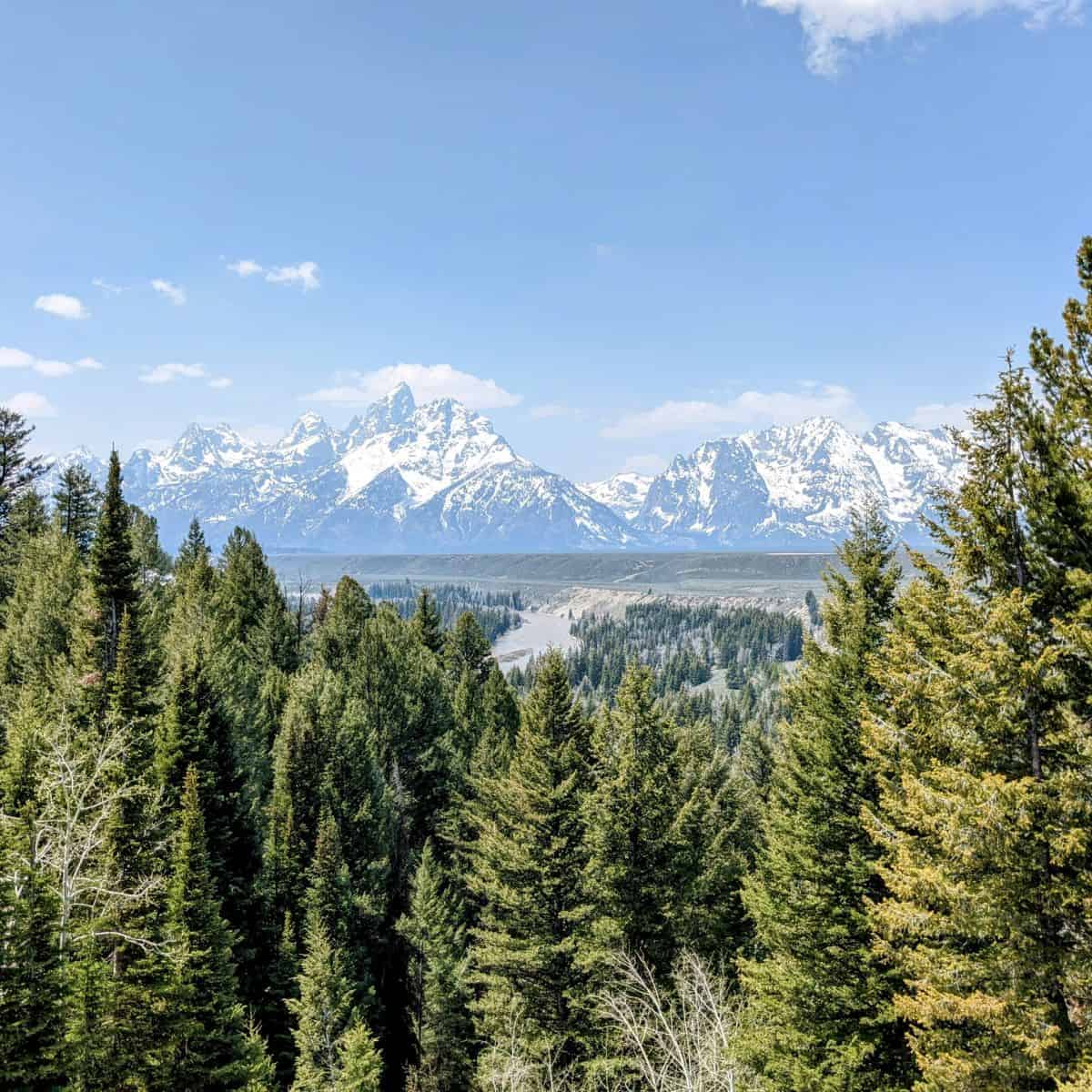
Day 3: Jenny Lake and hiking
Spend your third day at Jenny Lake, the centerpiece of Grand Teton National Park. Take the boat across the lake and hit the trails for a hike to Hidden Falls and Inspiration Point. You can also bypass the boat shortcut and hike around the southern end of the lake.
If you don’t want to hike today, consider doing a scenic boat tour on the lake. And don’t miss the Jenny Lake Visitor Center and store.
In the afternoon, consider adding these hikes:
- Hike to Taggart Lake
- Do the Taggart Lake – Bradley Lake Loop hike
- Hike the String Lake Loop
- Hike to Leigh Lake
- Hermitage Point
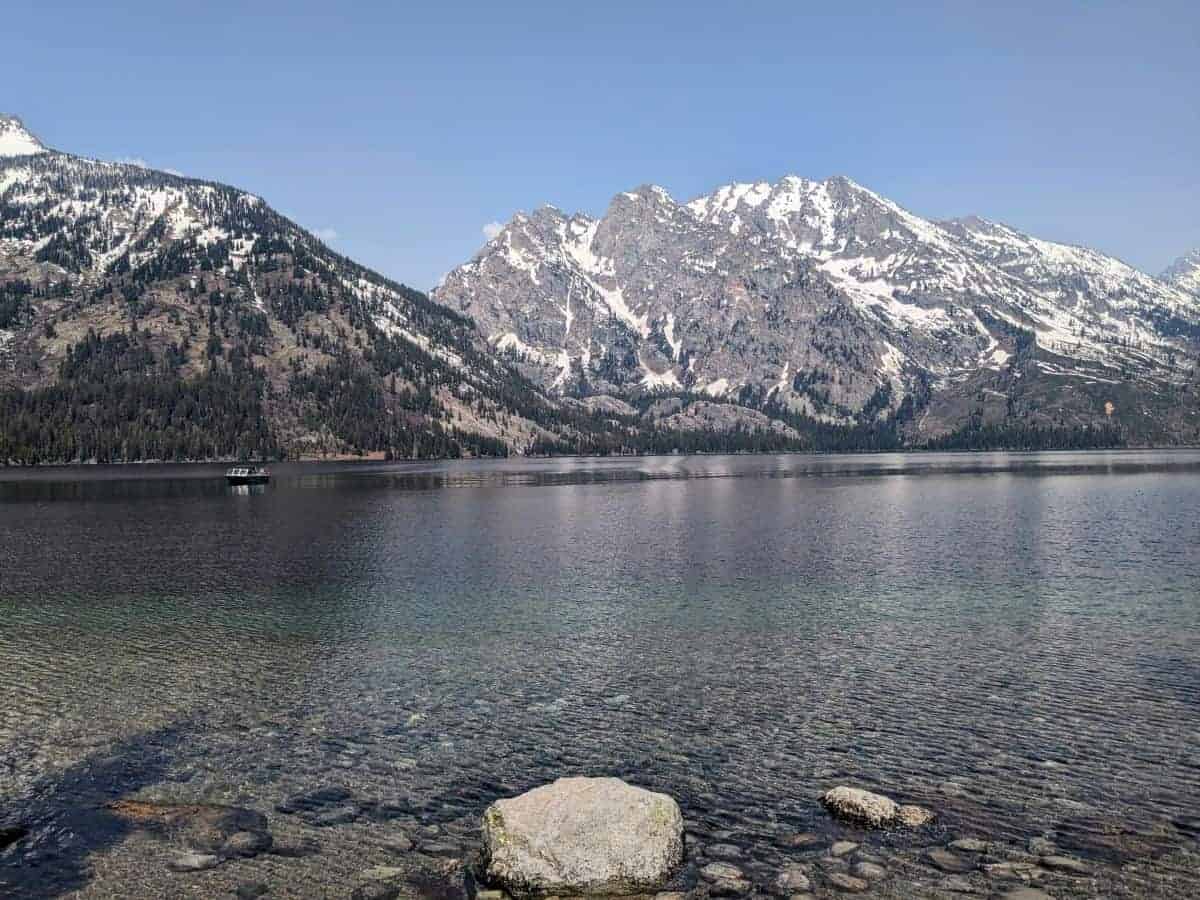
Day 4: Northern Grand Teton and Yellowstone Upper Geyser Basin
Today you’ll leave Grand Teton National Park and head to Yellowstone, using the John D. Rockefeller Jr. Memorial Parkway, which connects the two parks. The parkway is not long. You’ll enter Yellowstone through the south entrance.
As you head to Yellowstone, you’ll drive through Grand Teton’s northern section. You can explore a few spots north of Teton Park Road before you leave. There are some lovely scenic overlooks like Willow Flats and Jackson Lake Overlook.
Once in Yellowstone, head for the Upper Geyser Basin to witness the iconic Old Faithful. Check geyser eruption schedules at the Old Faithful Visitor Education Center to help with your planning.
Of course, there’s more to the Upper Geyser Basin than just Old Faithful. To plan the rest of your day in Yellowstone, read my guide to exploring the Upper Geyser Basin.
Consider staying at the Old Faithful Inn, if only for one night. It’s quite an adventure. The ‘old house’ part of the Inn, constructed in 1904, is a draw for guests with its amazing and enormous lobby. Beyond the charm of the Inn, staying there allows you to watch Old Faithful erupt multiple times with fewer crowds.
We really enjoyed the vintage rooms (with shared bathrooms down the hall). Just so you know, these facilities were impeccably clean, updated, and not overcrowded.
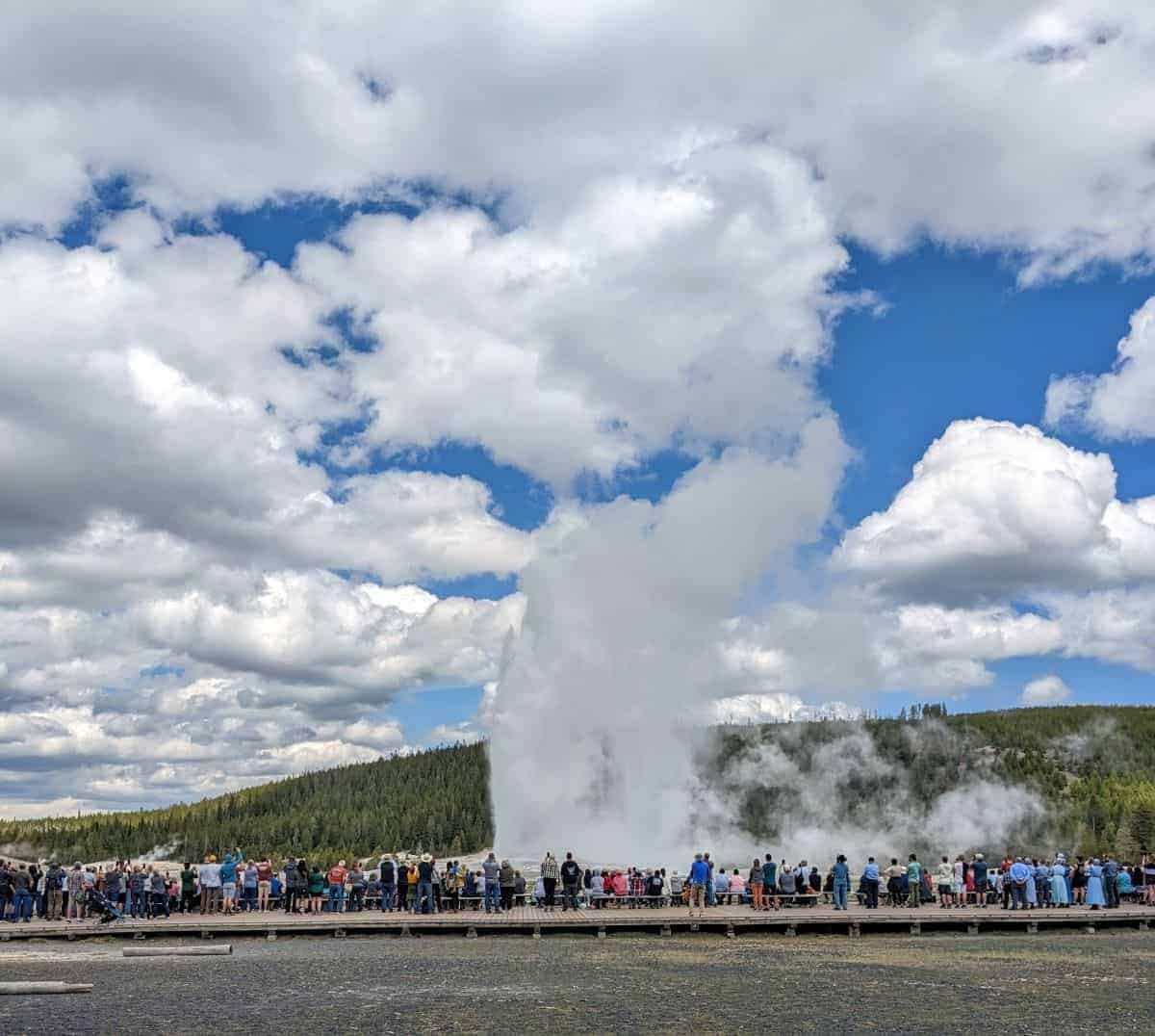
Day 5: More Geyser Basins and Grand Canyon of the Yellowstone
This morning, leave Old Faithful Inn for Midway Geyser Basin. Stop by Black Sand and Biscuit Basins on the way if you haven’t seen them yet. The key attraction at Midway is the stunning Grand Prismatic Spring.
If you visit early on a cold morning, the spring will likely be covered in thick haze and you won’t be able to see much. If seeing Grand Prismatic Spring is important to you, plan to visit later in the day, once things have warmed up.
Next, at Lower Geyser Basin, the Fountain Paint Pot and Firehole Lake Drive are must-sees, alongside Yellowstone hidden gems like Firehole Canyon Drive, Gibbon Falls, and Beryl Spring. The hike at Artists’ Paintpots is a bit tougher, but you’ll be rewarded with beautiful views of the area.
In the afternoon, enjoy the remarkable Grand Canyon of Yellowstone and views of the Upper and Lower Falls. For all the details, see my Grand Canyon of the Yellowstone driving guide.
For the rest of your trip, Canyon Lodge is a good place to stay. Its central location in the park will give you easier access to all the other sites you plan to visit.
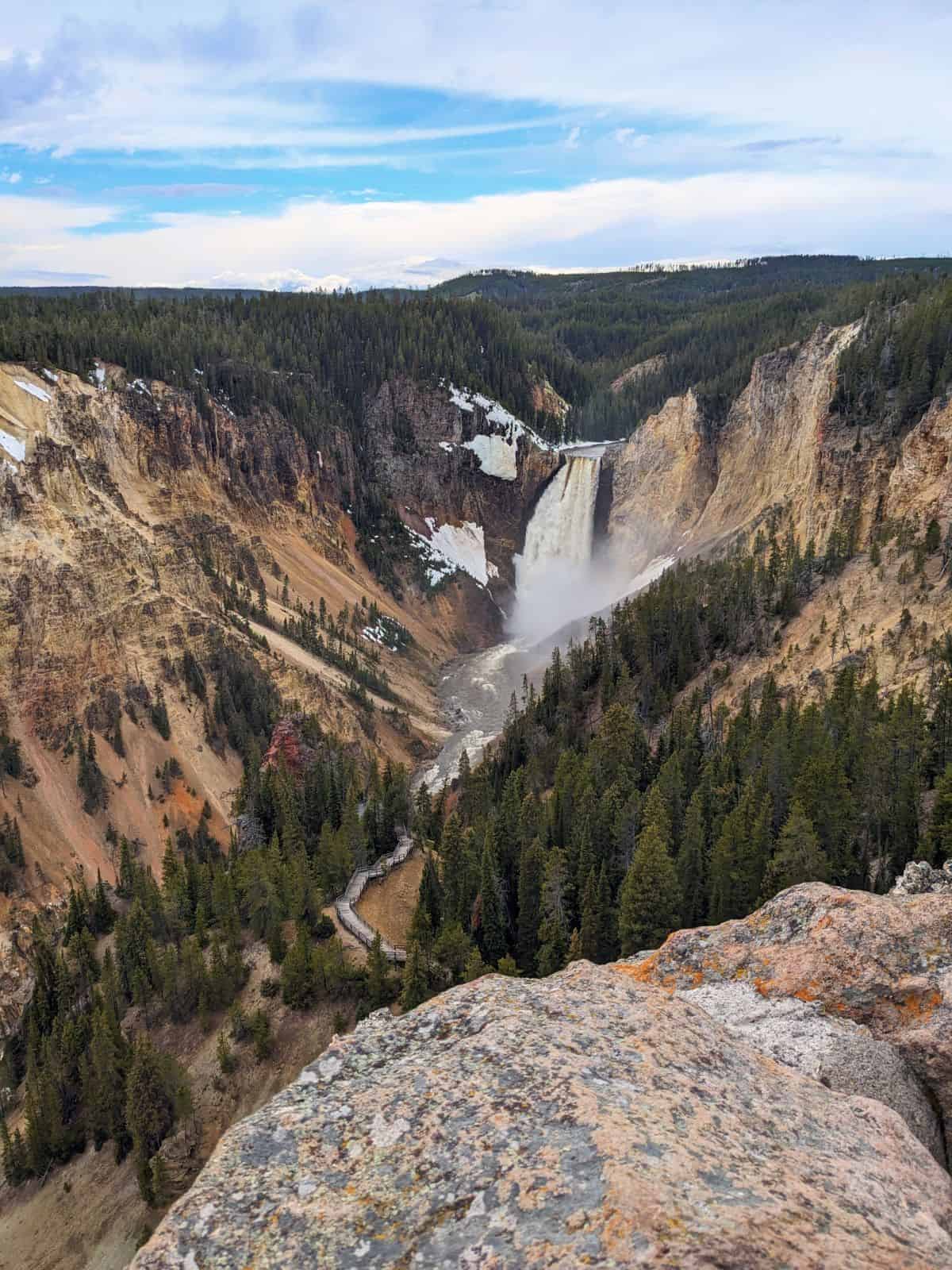
Day 6: Yellowstone Lake and wildlife viewing
Yellowstone is famous for its amazing wildlife viewing opportunities. Today, begin or end your day at Lamar Valley or Hayden Valley for a chance to spot elk, bison, wolves, bears, or bighorn sheep. If you want to try both valleys, my suggestion would be to do Lamar Valley at dawn today and then end your day in Hayden Valley since it’s so close to Canyon Village.
Spend the rest of your day exploring the Yellowstone Lake area. Also, make sure to visit the West Thumb Geyser Basin. This area is unique because of the hot springs and geysers at the lakeshore.
Yellowstone Lake is the perfect place for a picnic lunch. For a special dinner, consider the Lake Yellowstone Hotel Dining Room. Reservations are required.
Day 7: Norris Geyser Basin, Mammoth Hot Springs, and free time or head home
On your final day, visit the wonderful Norris Geyser Basin. This area is large, so if you have limited time, concentrate on visiting Porcelain Basin. Back Basin’s features, which are more spread out and isolated than those in Porcelain Basin, include Steamboat Geyser, the world’s tallest active geyser.
Then head to the terraces of Mammoth Hot Springs. The formations here are truly unique. You can explore the area through two separate loops: one for the lower terraces and another for the upper terraces. The upper terrace is vehicle accessible.
After this, it’s time to say goodbye to Yellowstone National Park. You could consider staying overnight in Mammoth or Gardiner, or you can travel on to Bozeman, Montana, for your flight home.
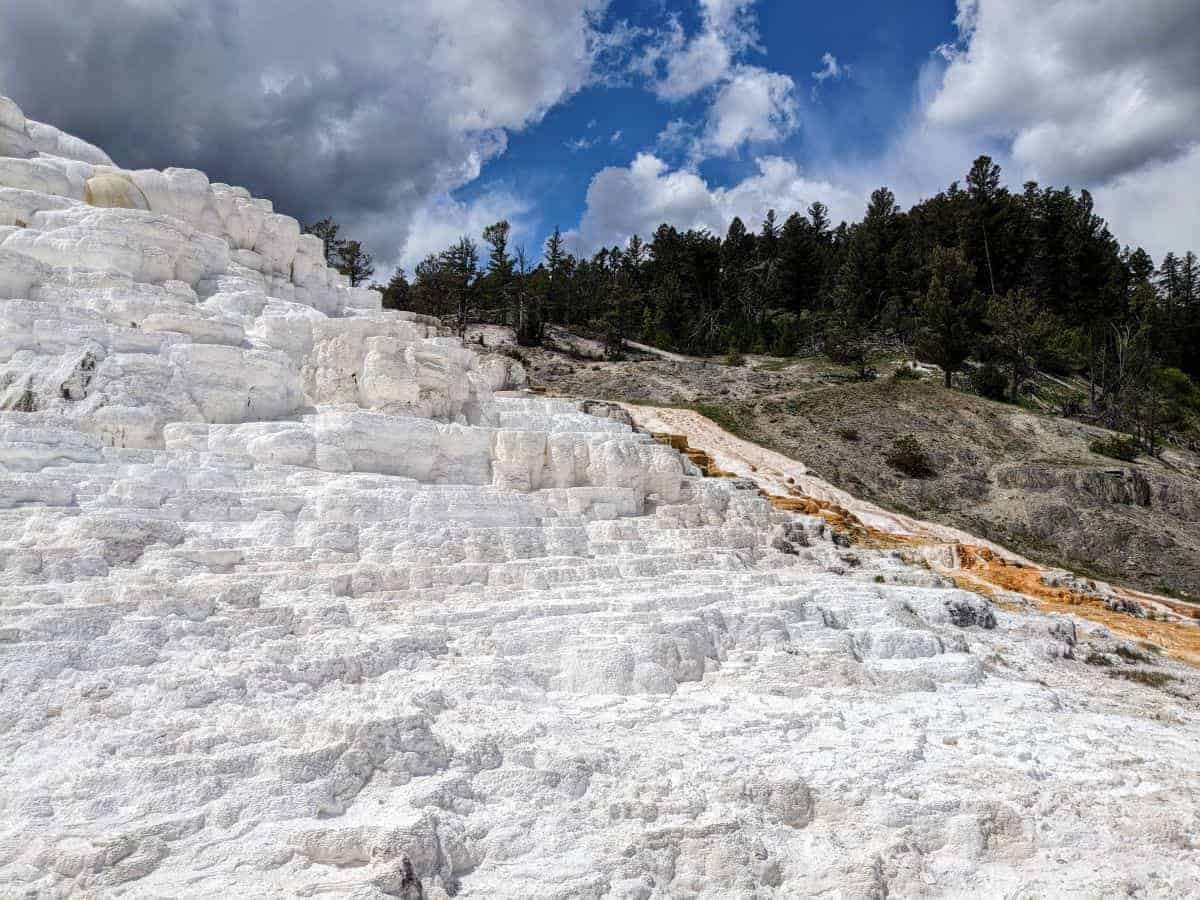
How to customize this itinerary
Creating an itinerary for your perfect Yellowstone and Grand Teton trip will depend a lot on how much time you have. Whether you’re short on days or have a bit more time to explore, here’s how to adjust your schedule effectively.
Visiting for fewer than 7 days
Suggestions for planning a shorter trip:
- Spend a day and a half at Grand Teton, with the first day for the scenic loop drive and a short hike. The next morning visit Jenny Lake then head up to Yellowstone to explore the Upper Geyser Basin late in the afternoon/evening.
- Reduce your Yellowstone visit by a day and skip minor stops like Fountain Paintpots at Lower Geyser Basin and the Back Basin at Norris.
- You could also do the lower loop of Yellowstone as a day trip from Jackson.
If you have more than 7 days
With extra days at your disposal, consider doing the following:
- Spend more time at each park’s main attractions and consider longer hikes, such as the Cascade Canyon Trail in Grand Teton.
- Explore surrounding areas such as Cody or Glacier National Park. Or head east to explore Devils Tower, Mount Rushmore, or Badlands National Park.
How to get there
There are a few airports nearby. If you’re going to follow this itinerary as written, I would fly into Jackson, Wyoming, (JAC) and leave from Bozeman, Montana (BZN). If you prefer larger airports, consider Salt Lake City (SLC), though be prepared for a 5-hour drive to Grand Teton or Yellowstone.
Keep in mind that weather can close park entrances and roads. Always check road conditions and entrances when planning your trip.
PRO TIP: If you have flexible travel dates you need to check out Going (formerly Scott’s Cheap Flights). You get amazing flight deals sent straight to your inbox with instructions on how to book directly with the airlines. Check out Going here. Going is my favorite way to find great travel deals.
Where to stay
This can be an overwhelming part of planning a Grand Teton/Yellowstone trip. There are a lot of options to choose from. A LOT.
Inside Yellowstone National Park
Although it can be more expensive, I highly recommend that you stay inside Yellowstone National Park during your visit. It will save you a lot of driving time. In addition, you may find it helpful to stay in more than one location within the park.
I recommend:
- The Old Faithful Inn: offers historic accommodations right at the most famous geyser in the world
- Canyon Lodge: modern and “green” rooms close to the Grand Canyon of the Yellowstone. Free Wi-Fi in the main lodge and other lodge rooms, but not in cabins.
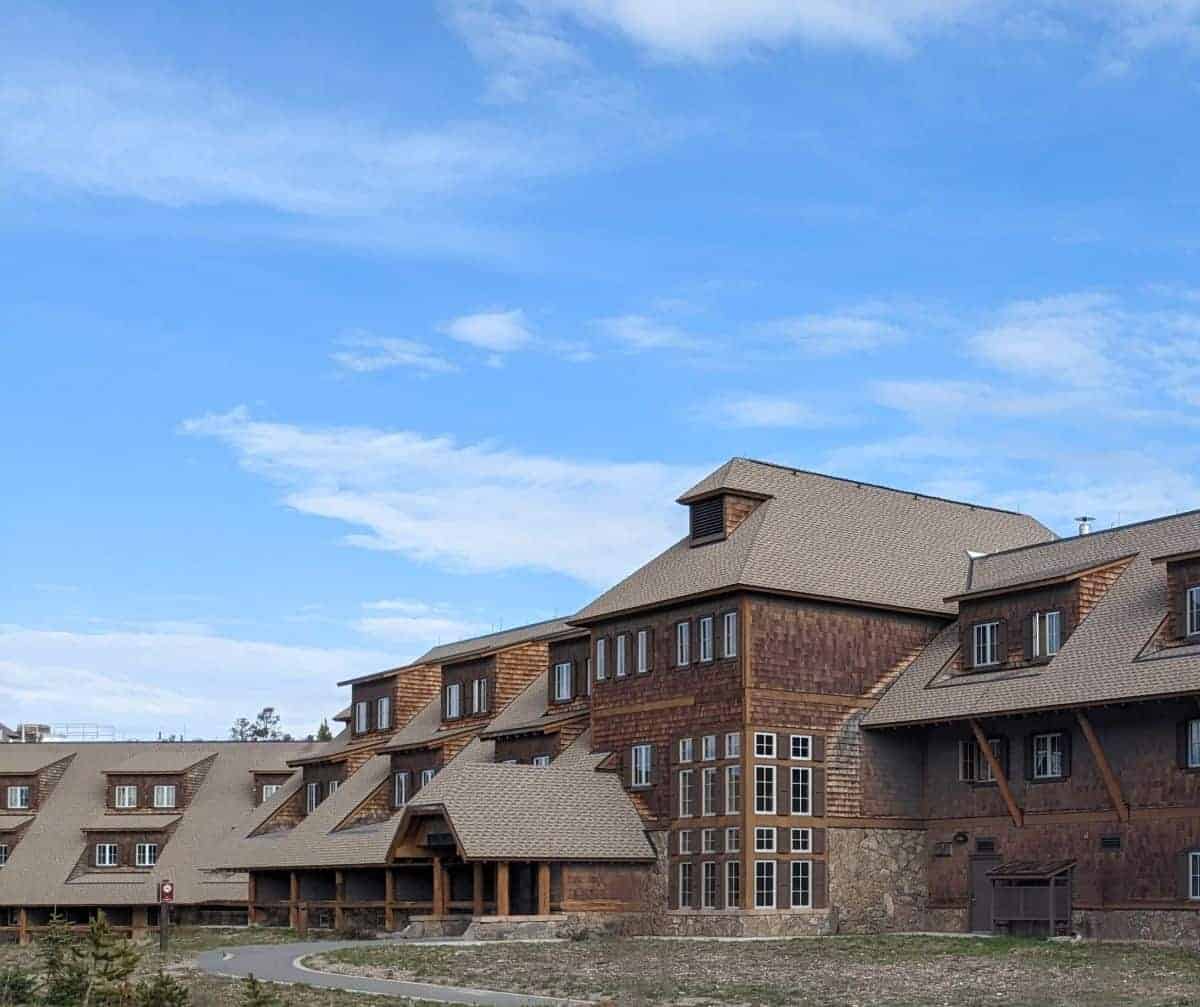
Outside Yellowstone
- West Yellowstone, Montana: by far the most popular place to stay outside Yellowstone, it’s just a few miles from the west entrance
- Gardiner, Montana: This small town is right outside the north entrance and just over 5 miles from Mammoth Hot Springs. It would make a great place to stop your last night in the park before flying home out of Bozeman. It’s about a 90-minute drive from BZN.
- Silvergate-Cooke City, Montana: this may be a great option for you if you want to prioritize wildlife viewing in Lamar Valley.
Inside Grand Teton National Park
There are some great lodging options there including:
- Jenny Lake Lodge
- Signal Mountain Lodge
- Jackson Lake Lodge
- Colter Bay cabins
- Camping (there are nine campgrounds inside the park)
Staying in Jackson, Wyoming
While visiting Grand Teton National Park, we stayed at the Flat Creek Inn, which is between the town of Jackson, Wyoming, and the entrance to Grand Teton National Park. We enjoyed a spacious king room with a living area and a full kitchen with a small dining area. The convenient location and amount of room we got for the money make The Flat Creek Inn a great option.

Other popular options in Jackson include:
- Wyoming Inn of Jackson Hole is located a little outside of the center of Jackson, but still in town. The spacious rooms and comfy beds are popular with guests.
- The Lexington at Jackson Hole is located near the center of town, close to the famous elk antler arches on the town square. It’s less than five miles from the park, and you can get suite rooms with a kitchen or a fireplace.
- Cowboy Village Resort offers western-themed cabins with kitchenettes. The resort is near the center of Jackson, and it’s popular with traveling families.
When to visit Grand Teton and Yellowstone National Parks
Between June and late September is the best time of year to visit Grand Teton National Park. Services are usually fully available in early June, and the crowds haven’t yet reached their peak. Be aware that even in June, the Teton weather can be unpredictable. Prepare for the unexpected and dress in layers.
Crowds will start dwindling after the American Labor Day holiday in early September when most U.S. schools will be in session, but the weather is still agreeable. About 70 degrees Fahrenheit is the average daily high temperature in Jackson Hole in September.
Yellowstone’s high season runs from June to August, with warm weather and access to all services, roads, and trails. July and August are also when the majority of the park’s guests visit.
The shoulder seasons, May to early June and September, offer a good balance of fewer visitors and mild weather. However, prepare for possible snow in May and early fall. In reality, snow can fall at any time in the park, so it’s best to always be prepared for it.
Wildlife viewing is excellent in the spring when animals are active and there are animal babies. Yellowstone typically opens all roads by late May. Check which park entrances, lodgings, services, and roads are open before planning your trip.
To avoid disappointment, especially during the busy summer months, book your lodging and campsites well in advance.
Grand Teton and Yellowstone Travel Tips
Park Entrance Fees
Both Yellowstone and Grand Teton National Parks require entrance fees. For each park, you can expect to pay $35 per private vehicle. This fee is good for seven days for each park.
If you plan to visit other parks besides Yellowstone and Grand Teton within a year, consider buying an America the Beautiful Pass for $80. This pass allows entry to national parks and other federal areas for one year.
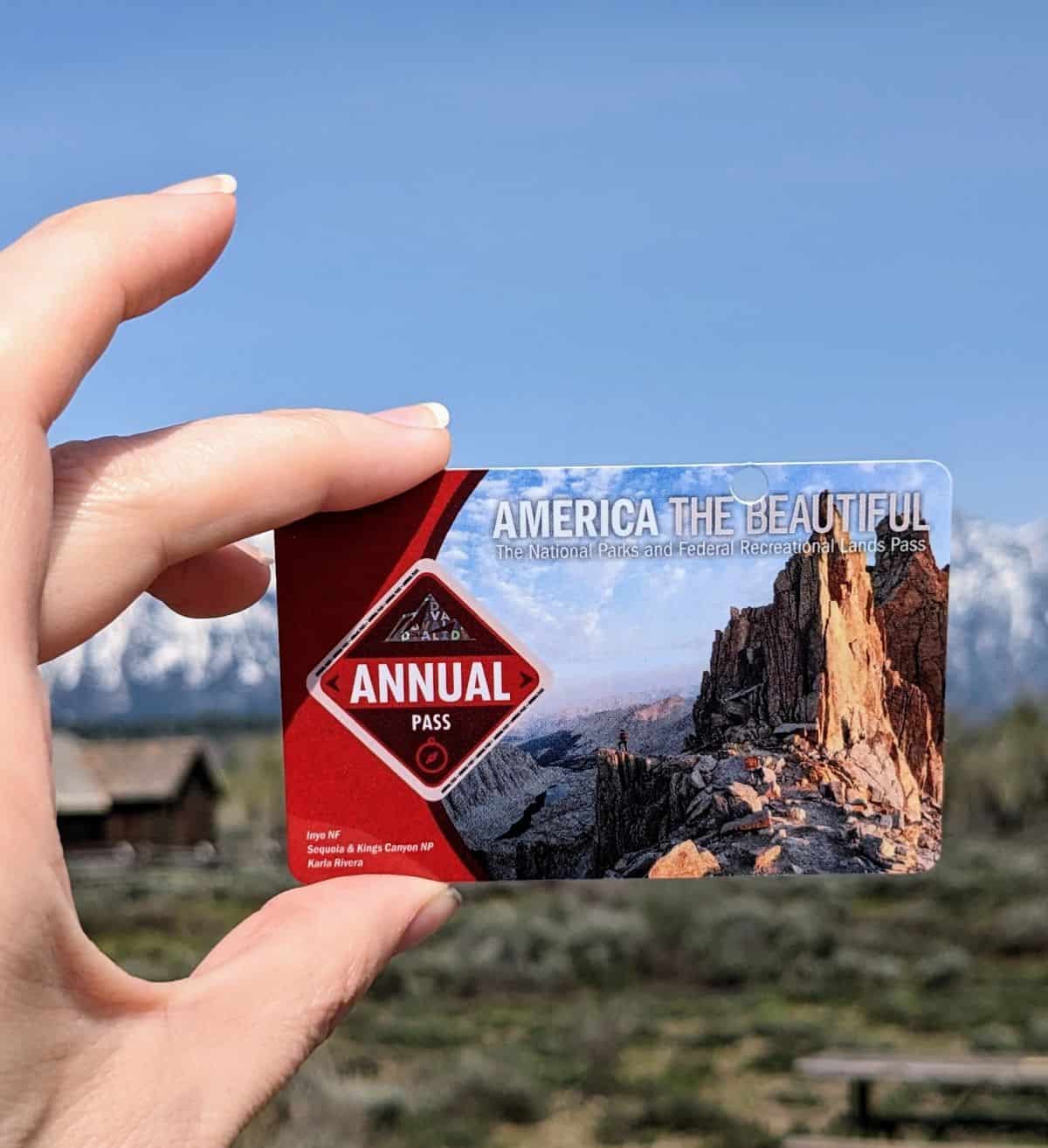
Wildlife Safety
When you’re exploring the parks, you’re on the home turf of bears, bison, elk, and more. Remember, these animals are wild and can be unpredictable. Always stay at least 100 yards away from bears and wolves, and 25 yards from all other wildlife.
What to pack
The weather in Yellowstone and Grand Teton can be unpredictable, so packing layers is key. See my article about what to pack for Yellowstone for my complete advice on this subject.
See more essential tips for visiting Yellowstone National Park.
Grand Teton Yellowstone Road Trip FAQs
How far is it from Yellowstone to Grand Teton?
The distance between Yellowstone and Grand Teton National Parks is relatively short. The drive is about 19 miles from Colter Bay Village in the Northern section of Grand Teton to the south entrance of Yellowstone. Between the boundaries of the two parks, you’ll travel along the John D. Rockefeller Jr. Memorial Parkway.
Does it matter which park you visit first?
No, it doesn’t matter which park you visit first, Yellowstone or Grand Teton. Your experience can be equally great whether you start at Yellowstone with its famous geysers or Grand Teton with its beautiful mountains. Start wherever best accommodates your preferences and travel plans.
Should I spend more time In Yellowstone or Grand Teton?
You will likely want to spend more time in Yellowstone because of its larger size and the variety of attractions it offers. There’s a lot to explore in Yellowstone. Grand Teton is smaller and so requires less time to visit. You may wish to spend more time there if you enjoy mountains and hiking.
How many days in Grand Teton is enough?
Plan to spend at least two days in Grand Teton National Park to appreciate the park’s primary sights, including Jenny Lake and the scenic loop drive. This also allows for a few short hikes and wildlife spotting. Consider adding a day to your trip if you enjoy longer hikes.
How many days do I need in Yellowstone?
A minimum of three to four days in Yellowstone is recommended to see its top attractions like Old Faithful, Grand Prismatic Spring, and the Grand Canyon of the Yellowstone. This will also give you time to spot bison, wolves, and bears.
Help planning your Grand Teton and Yellowstone National Parks trip
Pin this post!
